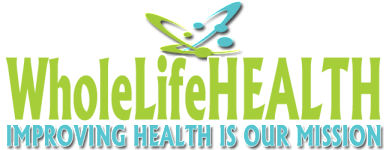What is Marine Phytoplankton?
Why Marine Pytoplankton with Spirulina?
How to take Marine Phytoplankton.
Marine Phytoplankton are the tiny microscopic plants (about the size of a human red blood cell) that naturally grows in the ocean and is the foundation and very beginning of the food chain and is considered one of the most nutrient dense foods on earth with phenomenal nutritional benefits potentially exceedicng all other foods. It is called a Whole Food or Super Food and a Super Nutrient because it contains virtually all the raw materials necessary to sustain human life: it is a complete source of nutrition which includes proteins, amino acids, vitamins, antioxidants, minerals, trace minerals, pigments, enzymes, chlorophyll, essential fatty ac-ids, including omega 3 fats, phytonutrients, micronutrients, phyto-chemicals, carotenoids and more. It contains 400 times more energy than any other known plant and because of its unique nutritional properties and microscopic size; it penetrates the cellular level of the body thereby enabling fast nutritional support to multiple health ailments. Nearly the entire organism is nutritious, with minimal indigestible structures. By contrast, typically less than half the dry weight of raw fruit and vegetables has any nutrient value. Diets that consist of only land-based plants are usually deficient in trace minerals and micronutrients. Plants from the ocean are naturally rich in ocean water minerals, as well as all the trace minerals. Research has shown that trace minerals can prevent and reverse serious health conditions. For example, read this article. Zinc speeds tissue repair in the body and strengthens the immune system. Magnesium helps with heart disease and neuro-logical disorders. Chromium helps regulate blood sugar. Strontium is essential for building strong & healthy bones. Iodine, read this article. Iodine also controls appetite cravings. Complete nutrition will enhance the structure and function of all organs in our bodies and keep our bodies in balance. Over-reliance on land-based food sources often leads to deficiencies in micronutrients and trace elements. Our bodies need these elements to perform as nature intended. Left to its own de-vices, the human body has a marvelous internal system called “homeostasis” which keeps all systems in balance. Take away certain critical components and the body experiences malfunction, which cause sub optimal performance. Too many malfunctions cause disease. Phytoplankton serves as a valuable source of nourishment for many sea animals. Of particular interest, phytoplankton provides fish with the healthy omega-3 fatty acids, such as EPA and DHA. Omega 3 fatty acids are essential to human health, and proven to reduce ones risk for cardiovascular disease, auto immune disorders, and behavioral disorders. Phytoplankton is also a rich source of antioxidant nutrients and pigments, including the carotenoids astaxanthin, canthaxanthin and zeaxanthin. Because carotenoids work together to prevent disease and provide healing in the body, it is believed that the only truly effective way to benefit from the carotenoid family is through whole foods because they represent the intricate balance that can only be found in nature. Marine phytoplankton has been shown to provide the same level of antioxidants as found with cruciferous vegetables. Cruciferous vegetables are amazing health protectors, detoxifiers, and provide a nutrition powerhouse. How-ever, the astounding health benefits reported with marine phytoplankton may indicate that this whole food contains unique anti-oxidant pigments unavailable in other common foods. Alternatively, it may be working at a cellular level to produce a stronger antioxidant effect within the body.
It is nearly impossible to get all the nutrition we need for maintaining healthy bodies without adding some high quality nutritional supplements to our diets. Unlike any other food, Marine Phytoplankton is being hailed as the new ‘super food’, as it is 100% nutritionally useful and bio-available to the body; when you eat it, nothing whatsoever gets wasted. Unlike most normal foods like fruits, vegetables, nuts, grains, meat and fish, as they actually contain less than a 50% nutritional value that is useful to the body. Because of this, during the digestive process, humans produce a significant quantity of waste by-products from consuming these conventional foods. These waste by-products produce toxicity and stress in the body, particularly if the gut, liver and other organs are not functioning correctly. Over time, this toxic stress overload can lead to illness and disease, hence the record levels of drugs being prescribed nowadays.
